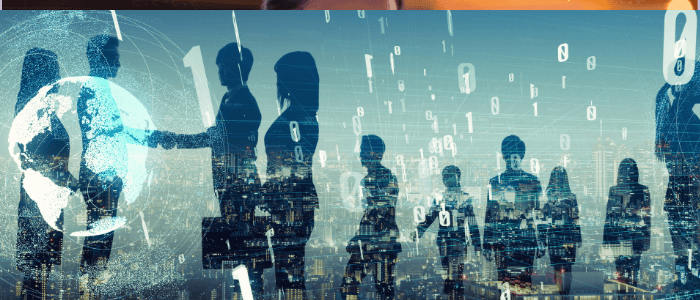By: Cindy Najera on November 25th, 2024
What's Next for HR Tech? 7 Trends to Have on Your Radar
The past two years have been dominated by conversations about Generative AI and its potential impact on the workplace. Would it spark a productivity revolution? Or would it lead to humans becoming obsolete? So far, the answer seems to be... neither.
A recent Gartner report found that 47% of employees don't know how to use current AI tools to improve their productivity. More worryingly, 77% say that AI tools have actually decreased their productivity and added to their workload.
However, there's no doubt that AI is here to stay and that it will continue to impact Human Resources. HR leaders will need to continue hiring and training to develop internal competencies in 2025, while also looking at new ways to automate certain HR functions.
This is just one of the ways in which technology will impact HR and Human Capital Strategy. Let's take a closer look at what else lies ahead.
7 HR technology trends to watch in the coming months
1. Increased focus on AI benefits
Almost every enterprise tool now includes some AI features. Copilot is part of Microsoft products, ERP and ATS platforms offer AI assistant, and even LinkedIn will help you write job ads with AI. The next challenge is finding ways to realize the benefits of these tools.
For HR teams, this will include looking at ways to automate common tasks. This might include things like:
- Developing AI chatbots to answer employee queries
- Using Generative AI to create documents and job ads
- Reorganizing internal processes to allow for greater automation
In some cases, this might require HR teams to perform a full IT review. Can your current HRIS platform support your automation plans?
2. Upskilling and "new-collar" hiring
Digital transformation always impacts HR, as the HR function will be tasked with delivering the relevant training. As we adapt to Generative AI, many organizations might switch to an upskilling model, which puts a greater focus on self-led professional development. You can read more about upskilling strategies in this recent blog.
Technology may also create brand new job categories that didn't exist before. If your organization adopts an AI-powered strategy, you might need to focus on hiring AI experts, including developers, analysts and cybersecurity experts. As these are entirely new roles, you'll need dynamic HR leadership to help you find the right talent.
3. Unique cybersecurity challenges for HR
The threat of cybercrime continues to grow. Security breaches cost an average of $4.8 million in 2024, a year-on-year increase of approximately 10%. HR teams are one of the prime targets, as they have access to extremely sensitive (and valuable) data about employees and candidates.
In recent months, recruiters have been targeted in sophisticated malware attacks, while the FBI has issued warnings about fake candidates. Employee data breaches are at a five-year high and are likely to rise. For this reason, cybersecurity needs to be the top priority for HR leaders, especially when making changes to your IT infrastructure.
4. Better data collection and analytics
Most organizations would love to have a data-driven HR team that can make decisions based on real-time analytics. Unfortunately, we're still a long way off from this. One report found that only 17% of companies are effective at tracking data about individual productivity, even though 74% consider this to be extremely important.
2025 is likely to see a renewed push to gather and analyze HR data. This might take place as part of a drive to integrate AI into HR processes, as AI needs large quantities of data in order to be effective. When HR leaders are considering software upgrades, they will need to take a closer look at how that software supports data analytics.
5. More sophisticated hybrid workplaces
The debate about remote work and return-to-office policies has continued to rage throughout 2024. Whichever side of the debate your organization is on, it's likely that you have at least some hybrid or remote workers on your team. The tools for supporting these workers have improved in recent years, with major upgrades to employee experience platforms like Microsoft Viva.
The coming year should see more upgrades, with the possibility of some brand new technology changing things further. Big tech companies such as Apple and Meta are pushing Virtual Reality and Augmented Reality devices which could potentially help remote workers feel like they're much closer to the office.
6. Internal talent marketplaces will become a must-have
7. The human touch: more important than ever
Stay ahead of HRIS trends with expert help





